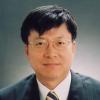Jehoon Park is presently the Secretary General of the Asia Economic Community Forum and Professor at the School of Northeast Asian Studies at the Incheon National University. His primary areas of interest are Northeast Asian Economy, Comparative Economics, and Transition Economics. He completed his B.A. and first M.A. at Seoul National University. He also attended the Ohio State University for his second M.A. and PhD in Economics. Dr. Park has also served as Visiting Scholar to Saint Petersburg State University and UC Berkeley, Dean of College of Northeast Asian Studies at Incheon National University, Research Fellow at the Korea Institute for International Economic Policy, Teaching Associate at the Ohio State University, and Researcher for Korea Institute for Economics & Technology. Additionally, he has organized the Annual International Conferences by Northeast Asia Intellectuals’ Solidarity Korea (NAIS Korea) as the Secretary General since 2001. Policy experience includes serving as an advisor to the Ministry of Economy and Finance of Korean Government and Incheon Metropolitan City since 1994. He co-edited Political Economy of Northeast Asian Regionalism: Political Conflict and Economic Integration published by Edward Elgar 2008, Regionalism, Economic Integration and Security in Asia: A Political Economy Approach published by Edward Elgar 2011 and Asian Responses to the Global Financial Crisis: The Impact of Regionalism and the Role of the G20 published by Edward Elgar 2012.
